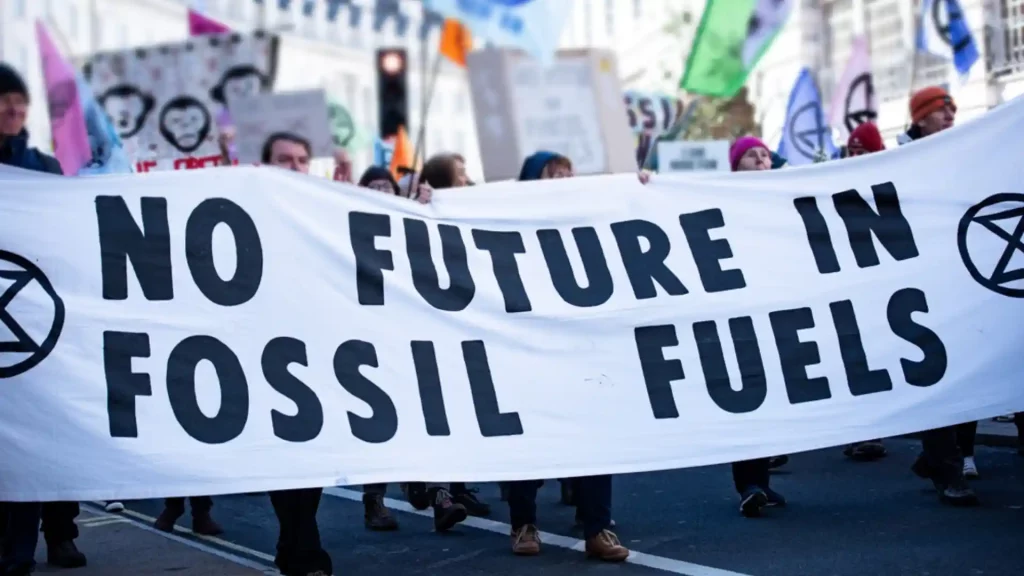The COP28, hosted by an OPEC member, the United Arab Emirates, registered a record attendance from the oil and gas industry, government authorities, world leaders, etc., to participate in the climate talks.
COP28 witnessed a lot of international energy giants making commitments to work towards reducing greenhouse emissions. These pledges failed to persuade sustainable fund managers to invest in oil and gas companies because they release pollution from their business operations.
In the recently held UN Climate Change Conference in Dubai, 50 major energy giants committed to reaching their methane emissions near the zero mark by the end of this decade and to achieving net-zero carbon emissions from their use and production of oil and gas by 2050.
The Scope 1 and 2 emissions released by the companies’ day-to-day operations amount to 15% of the total associated with the companies. The Scope 3 emissions were left out of the pledge as they come from the fuels produced by the company as the companies have no control over it, which accounts for the remaining 85%.
ESG (environmental, social, and governance) investors said that the commitments that have been neglected lately needed to be increased as per the fund’s requirements.
Candriam, an asset management company, said that they would move forward with the exclusion of oil and gas companies from their sustainable funds as none of the major companies were working towards achieving the targets set in the Paris Agreement for climate change. The agreement had set a target to cease global warming in the range of 2 degrees Celsius (3.6 degrees Fahrenheit) and put a cap of 1.5 degrees Celsius as the limit.
The goals set by the agreement require global greenhouse emissions to decrease by 43% by the end of this decade and absolutely zero by 2050.
Alix Chosson, lead ESG analyst at Candriam, said that the shift to a low-carbon environment cannot be achieved by using carbon-efficient ways to produce the same amount of oil and gas. It will require transitioning from fossil fuel to cleaner and sustainable energy sources.
The COP28, hosted by an OPEC member, the United Arab Emirates, registered a record attendance from the oil and gas industry, government authorities, world leaders, etc., to participate in the climate talks.
Kamal Bhatia, global head of investments at Principal Asset Management, said that without energy transition methods, the fossil fuel companies do not environmentally meet 100% of the definition to become a part of the ESG funds.
Italy’s ENI is the only company amongst the 25 largest oil and gas companies to be in tandem with the Paris Agreement as per the assessment of Carbon Tracker.
As per the calculations of the International Energy Agency, out of $10 spent in the last year, $5 went into capital expenditure, compared to $8.6 in 2008. The oil and gas companies have reduced shareholder payouts to increase production, neglecting the emissions targets. The capital expenditure on low-carbon strategies was a mere 10 cents of every $10 spent in the last year.
Change in Economics
After the rise in fossil fuel prices during the Ukraine crisis, ESG sustainable funds invested heavily in oil and gas companies. Simultaneously, the cost of living in various parts of the world soared, which drew their attention from sustainable investment to achieving the easiest possible shareholder return.
Data from Morningstar shows that the amount of US-domiciled sustainable open-ended funds and other ETFs that had invested in oil and gas rose to 49% in September. However, when energy prices cooled off, several funds started going down in value due to overexposure.
Tom Steyer, a US-based billionaire environmentalist, said that sustainable fund investors still need to influence the oil behemoths as shareholders. He criticised them by mentioning that a lot of them invested in ExxonMobil and tried to turn it around, and Exxon’s board responded by acquiring Pioneer Natural Resources in a $60 billion deal.
